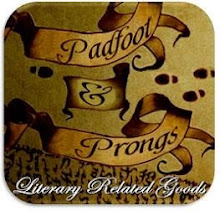The Barber of Seville and The Marriage of Figaro
Piere Beaumarchais
Although I have never been to a performance of an opera (a good conclusion is because I am not nearly classy enough, although I do love to think that I am) I've always had a love for opera music; especially the song "Figaro, Figaro!" or, "Largo Al Factotum" from The Barber of Seville. Just think back to Mrs. Doubtfire-at the beginning when Robin Williams is singing as a cartoon bird-oh yes you know it-that is the song. The same song of which I happen to love singing very loudly in the shower (you know that one too? Creepy).Piere Beaumarchais
I found the original version of The Barber of Seville/The Marriage of Figaro by Piere Beaumarchais translated by John Woods, as a wonderful old copy, in my nearest Half Price Books. I love reading plays rather than
 seeing them, so I figured I'd give it a go. But as usual I digress, here's my thoughts:
seeing them, so I figured I'd give it a go. But as usual I digress, here's my thoughts:One thing is certain about The Barber of Seville: it is a very quick-read that I enjoyed from beginning to end. It starts off with Count Almaviva, who is in love with a woman named Rosine, who he really has never even met, he's just seen her from a distance (but it's 18th century Spain, so hey, it's normal). The problem is, Rosine has a creepy "guardian" who really wants to marry her. Well, The Count calls upon his "wingman" Figaro to help him win the love of Rosine, and to steal her away from Bartholo, the guardian:
"Look! I'm going in there-- and with one stroke of my
wand I'll lull vigilance to sleep, awake the transports of love,
thwart the machinations of jealousy, confound base
intrigue, and overcome every obstacle that confronts us."
-Figarowand I'll lull vigilance to sleep, awake the transports of love,
thwart the machinations of jealousy, confound base
intrigue, and overcome every obstacle that confronts us."
 am sounding sarcastic as always, it is surprisingly true. Beaumarchais has thrown in an immense amount of irony and wit into this dramatic story. Beware: be ready to encounter lots of enjoyable irony; the lighthearted feel of the story while the whole story is one big dramatic soap opera is an example.
am sounding sarcastic as always, it is surprisingly true. Beaumarchais has thrown in an immense amount of irony and wit into this dramatic story. Beware: be ready to encounter lots of enjoyable irony; the lighthearted feel of the story while the whole story is one big dramatic soap opera is an example.As you move on to The Marriage of Figaro, which is another story in itself after The Barber of Seville, you begin to see mirror situations of what happened in the first story. It is actually quite humorous, especially since we see role reversals of complete opposite characters. All the while, Figaro reminds you of a corny, smooth-talking, typical jumping-on-tables-to-recite-Shakespeare kind of guy, but you cannot help but love him.
I will give you five words/phrases to judge the book off of, just in case my review does not strike you in the cerebellum: Cross-dressing, pranks, damaging of gardens, foul-play, tom-foolery.
Now you have to read it!!!
.jpeg)



























